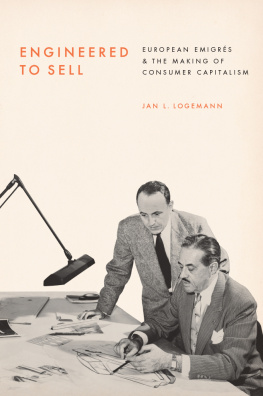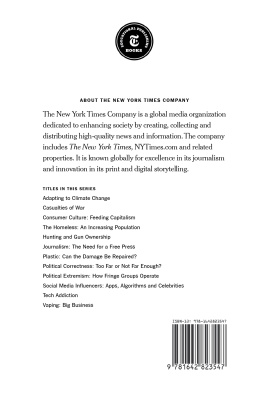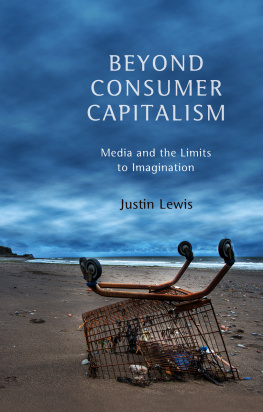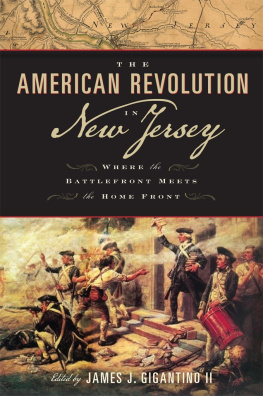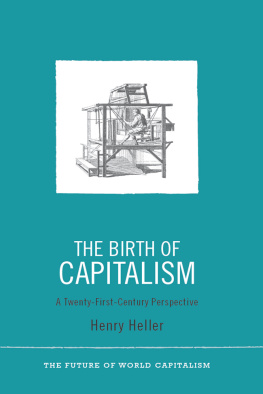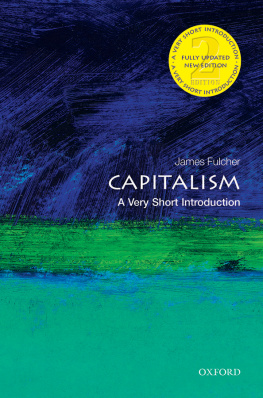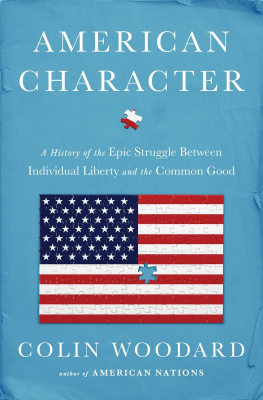Contents
Guide
Pagebreaks of the print version
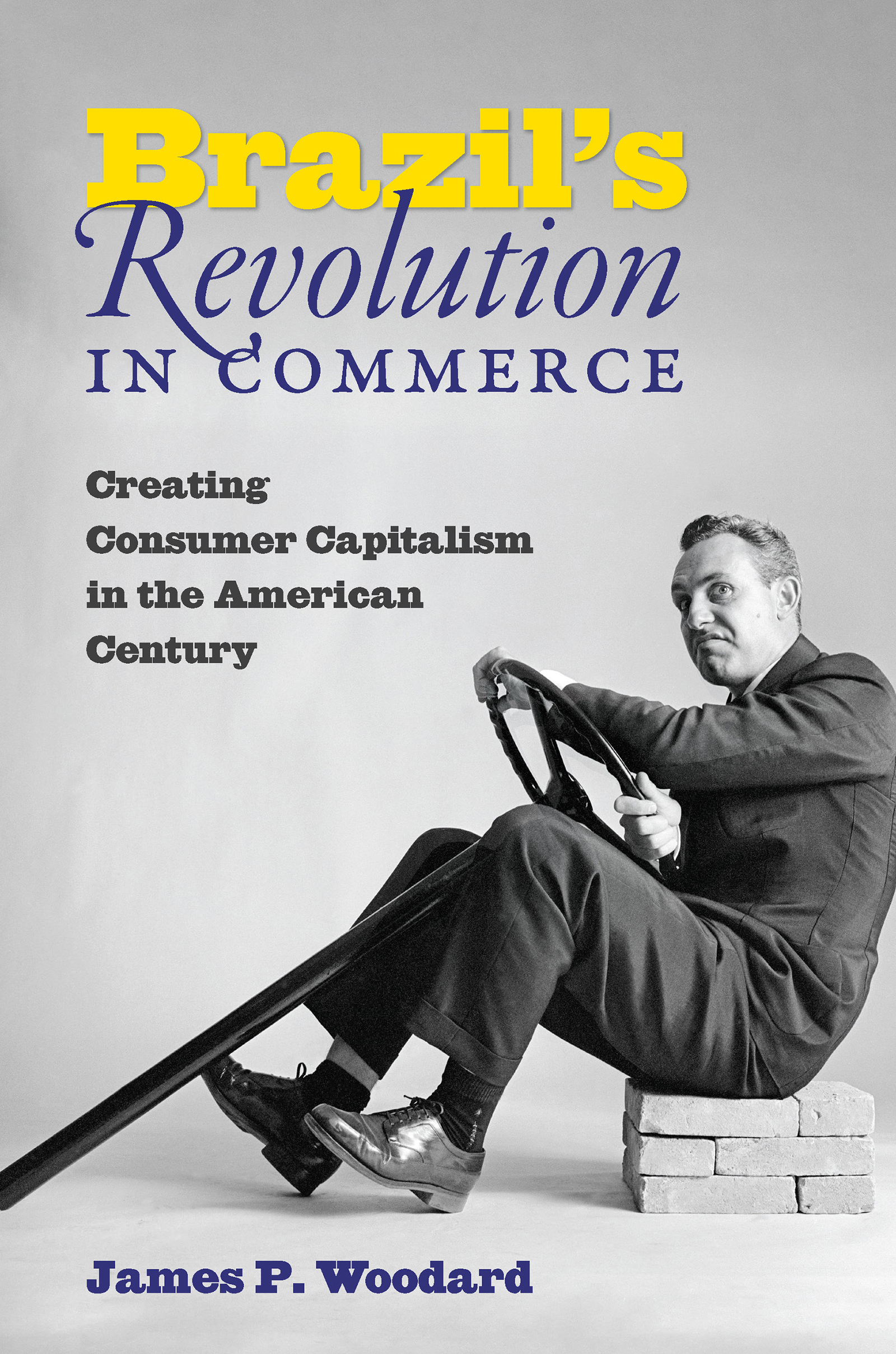
Brazils Revolution in Commerce
Brazils Revolution in Commerce
Creating Consumer Capitalism in the American Century
JAMES P. WOODARD
The University of North Carolina Press
Chapel Hill
2020 The University of North Carolina Press
All rights reserved
Set in Adobe Text Pro by Westchester Publishing Services
Manufactured in the United States of America
The University of North Carolina Press has been a member of the Green Press Initiative since 2003.
Library of Congress Cataloging-in-Publication Data
Names: Woodard, James P., 1975 author.
Title: Brazils revolution in commerce : creating consumer capitalism in the American century / James P. Woodard.
Description: Chapel Hill : The University of North Carolina Press, 2020. | Includes bibliographical references and index.
Identifiers: LCCN 2019035097 | ISBN 9781469656366 (cloth) | ISBN 9781469656434 (paperback) | ISBN 9781469656373 (ebook)
Subjects: LCSH: CapitalismBrazil. | Consumption (Economics)Brazil. | BrazilEconomic conditions20th century. | BrazilCommerceUnited States. | United StatesCommerceBrazil. | BrazilCivilizationAmerican influences. | BrazilRelationsUnited States. | BrazilSocial life and customs20th century. | United StatesRelationsBrazil.
Classification: LCC HC187 .W636 2020 | DDC 381.0981dc23
LC record available at https://lccn.loc.gov/2019035097
Cover illustration: Chico Albuquerque, Campanha para automvel Willys-Overland (1962). Chico Albuquerque / Convnio Museu da Imagem e do SomSP / Instituto Moreira Salles Collection.
For Louis A. Prez Jr.
Scholar, Mentor, and Friend
They like almost all our products, from hot dogs to automobiles, from chain stores to trailer camps. They want to make Brazil another United States of America: with more motion picture shows, radio and television, modern plumbing, electric refrigerators and everything else we have.
Nations Business, January 1945
They only know American methods and know nothing of Brazilian peculiarities. We know Brazilian peculiarities and also American methods, which are not an obscure subject matter and which are at our disposal in libraries and bookstores.
Auriclio Penteado (1951)
We accept the business philosophy that has communication with the masses as its greatest premise. We repeat for the hundredth time: we are an advertising-minded people.
Manoel de Vasconcellos (1956)
They are agents of the economic development of the Country, for it is well known that advertising is one of the most useful instruments in the expansion of productive activities today. They learned that difficult art with the Americans and transmitted their experience to other Brazilians.
Boletim Cambial, August 1959
We are beginning to be a people of consumers. The workers are beginning to have a, shall we say, middle-class consciousness. They are beginning to become consumers and the class struggle is nothing more than an outdated slogan.
Carlos Lacerda (1964)
If we continue on the same path, if we are able to transmit to the Brazilians an ever-greater repertoire of needs; if we are able to mobilize our own energies to attend to these needs, then we will create an internal market that will sustain the Brazilian economy.
Antonio Delfim Netto (1971)
It is they.
They who?
The white enemies.
I dont understand.
Wait.
Jos de Alencar, O Guaran i (1857), pt. 2, chap. 12
Who is this we, Kemosabe?
Americanism, n.d.
Contents
Tables
Brazilian Association of Advertiserssponsored social classification model (1970): goods and servants,
Brazilian Association of Advertiserssponsored social classification model (1970): education,
Abbreviations in Text
ABA | Brazilian Association of Advertisers |
ABAP | Brazilian Association of Advertising Agencies |
ABI | Brazilian Press Association |
ABP | Brazilian Advertising Association |
ACADE | Association of Merchants of Household Electrical Appliances |
ADVB | Association of Sales Directors of Brazil |
AMCE | Alcntara Machado Comrcio e Empreendimentos |
ANL | National Liberating Alliance |
APP | Paulista Advertising Association |
CEIMA | Automotive Materials Industry Executive Commission |
CIN | Companhia de Incremento dos Negcios |
CNP | National Advertising Council |
DDB | Doyle, Dane & Bernbach |
EAESP | So Paulo School of Business Administration |
EEB | Emprezas Electricas Brasileiras |
ESPM | Higher Advertising and Marketing School |
FENIT | National Textile Industry Fair |
FIESP | So Paulo State Federation of Industries |
GEIA | Automobile Industry Executive Group |
HBS | Harvard Business School |
IBOPE | Instituto Brasileiro de Opinio Pblica e Estatstica (Brazilian Institute of Public Opinion and Statistics) |
INESE | Instituto de Estudos Sociais e Econmicos |
IPOM | Instituto de Pesquisas de Opinio e Mercado |
ISEB | Higher Institute of Brazilian Studies |
JWT | J. Walter Thompson Company |
MASP | So Paulo Museum of Art |
NCB | National City Bank |
NCR | National Cash Register |
OCIAA | Office of the Coordinator of Inter-American Affairs |
RBP | Royal Baking Powder |
SAPS | Servio de Abastecimento da Previdncia Social |
SCPC | Central Credit Protection Service |
SENAC | National Commercial Apprenticeship Service |
UD | National Domestic Utility Fair |
UEB | Unio de Empresas Brasileiras |
URAPEL | Union of Electrical Appliance Retailers |
USP | University of So Paulo |
Preface
A classe C vai ao paraso!
(Class C goes to paradise!)
The words were everywhere in Brazil as the first decade of the twenty-first century ended. Few literate Brazilians could have escaped seeing them or hearing them, and everyone apparently knew what they meant. Indeed, even Brazilians who contested the statements basis in fact knew exactly what it was supposed to signify.
That meaning, of course, was not immediately apparent to visitors from abroad or most observers from afar. Who made up class C? What sort of paradiseterrestrial or otherhad they encountered? The answers to these two questions, in plain English, would be that class C was the working poor, a majority of Brazils population, in cities and towns from the Amazon to the pampas of the south, for whom paradise consisted in having, for the first time in their countrys history, sufficient means to become full-fledged participants in the world of consumer goods and services epitomized by an abundance of home appliances and access to household credit, culminating, for the truly fortunate, in a late-model family car. That was what the statement meant to Brazilians, who used the term class C as social shorthand and took it for granted that heaven on earth resided in the products and promotions of consumer capitalism.


